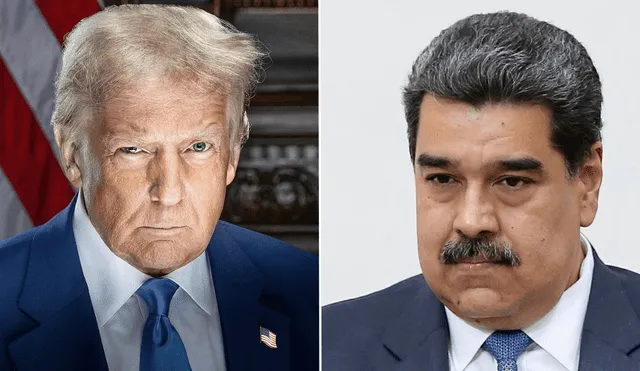Trump shuts down oil deal, deepening Venezuela’s economic crisis
President Trump justifies his decision, effective since March 1, due to electoral irregularities and the alleged slowness in the repatriation of irregular immigrants.

Donald Trump has recently put Nicolás Maduro in a difficult position, as he is revoking a license granted to U.S. oil major Chevron to operate in Venezuela. Trump states that Maduro is not complying with the agreement to receive deported migrants, and announced he will be reversing the concessions of the oil transaction agreement.
President Trump did not mention Chevron in his Truth Social post. He only stated that it would revoke the concessions granted on November 26, 2022. It was on that date that the Department of the Treasury granted Chevron permission to expand its operations in Venezuela. The license was supossed to be renewed on March 1.
Trump shuts down Chevron operations in Venezuela
Trump had already announced ten days ago that he was considering canceling the export license, due to the irregularities in the last Venezuelan elections and the alleged slowness on the repatriation flights for irregular immigrants. Given that Chevron's license is made to renew automatically every month and for a period of six months, we will have to wait until March 1 to see if the White House does not back down. If Trump insists, Chevron has six months to cease its operations in Venezuela.
A Chevron spokesperson said the company was studying the implications of Trump's statement. Chevron, the second-largest American oil company, has long operated in Venezuela. Last month, about 238,000 barrels a day of Venezuelan oil arrived in the United States through Chevron, according to Reuters. The announcement had a swift effect on oil prices, which rose more than 1% on Thursday.
Economic and political implications for Venezuela
- Loss of vital revenue: Venezuela’s economy heavily depends on oil exports, and losing a U.S. deal worsens its economic crisis.
- Stronger sanctions pressure: The cancellation reinforces U.S. sanctions, limiting Venezuela’s access to foreign currency and worsening inflation.
- Energy market instability: Without U.S. buyers, Venezuela may struggle to find alternative markets, forcing it to sell at discounted prices.
- Increased dependence on China and Russia: Losing the U.S. deal may push Venezuela closer to China and Russia, who could exploit the situation for cheaper oil.
- Potential for political instability: A weaker economy could lead to domestic unrest and weaken Nicolás Maduro’s government.
Venezuela has also called the decision “damaging” and said it could increase migration to the US.
Impact on the U.S.
Even though this cancellation deepens Venezuela’s economic woes, it also increases oil price volatility in the U.S. Here are the major issues the U.S. could face:
- Higher oil prices: Cutting off Venezuelan oil may reduce global supply, driving up fuel prices in the U.S. market.
- Stronger domestic oil production: U.S. oil companies might benefit as reliance on domestic drilling and alternative suppliers increases.
- Geopolitical shifts:The U.S. loses leverage in Latin America, allowing China and Russia to strengthen their influence in the region.
- Impact on energy security: Reducing import options could make the U.S. more vulnerable to global oil market fluctuations.
- Trade and diplomatic strains: The move could strain relations with allies who rely on Venezuelan oil, affecting regional diplomacy.












